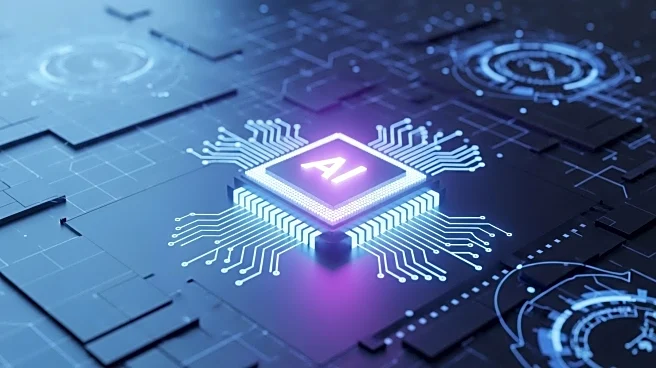What's Happening?
OpenAI has launched an upgraded version of its GPT-5 Codex, specifically designed to enhance coding workflows for developers. This new iteration of Codex is tailored to support developers by working interactively on small tasks and independently on more complex projects. The model is trained with real-world software engineering tasks, such as starting projects, refactoring codebases, debugging, and conducting full code reviews. A significant feature of this upgrade is the dynamic allocation of 'thinking time' based on task complexity, allowing for quick responses to simple requests and more in-depth processing for complex tasks. OpenAI's internal testing demonstrated the model's capability to work autonomously for over seven hours, refining solutions and addressing test failures. The GPT-5 Codex is recommended for use within Codex environments to maximize its specialized capabilities.
Why It's Important?
The introduction of GPT-5 Codex represents a significant advancement in AI-driven software development tools. By providing a more reliable and efficient coding assistant, OpenAI aims to reduce the workload on developers, allowing them to focus on more creative and strategic aspects of software engineering. This could lead to faster development cycles, improved code quality, and earlier detection of issues, ultimately benefiting the tech industry by enhancing productivity and innovation. Companies and developers who adopt this technology may gain a competitive edge by streamlining their development processes and reducing time-to-market for new software products.
What's Next?
As developers begin to integrate GPT-5 Codex into their workflows, feedback will likely drive further refinements and enhancements. OpenAI's emphasis on safety and responsible use suggests that future updates may focus on improving security features and customization options for developers. The broader adoption of this technology could also prompt other AI companies to develop similar tools, potentially leading to a more competitive market for AI-driven development solutions.
Beyond the Headlines
The deployment of GPT-5 Codex raises important questions about the future of software development and the role of AI in creative industries. As AI tools become more sophisticated, there may be ethical considerations regarding job displacement and the need for developers to adapt to new technologies. Additionally, the reliance on AI for critical development tasks underscores the importance of ensuring these systems are secure and free from biases that could affect software outcomes.









